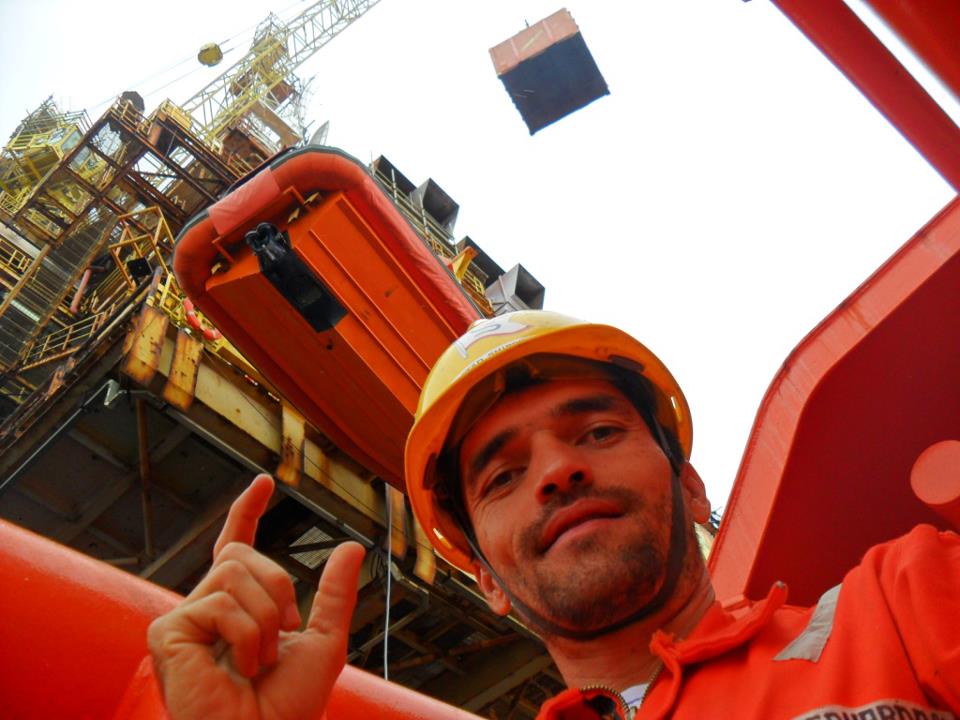Uma das escolas de samba, GRES Acadêmicos do Grande Rio, localizada em Duque de Caxias na Baixada Fluminense, apresentou a indústria de petróleo como tema do seu desfile. Especificamente, o desfile deles mostrou o debate polêmico sobre royalties de petróleo no Brasil. Royalties são pagos da indústria petrolífera ao governo para as suas operações no Brasil, e o dinheiro destes royalties é distribuído de acordo com legislação federal. Sob a atual legislação, a maioria dos royalties vai para os estados produtores de petróleo, principalmente o Rio de Janeiro e Espirito Santo. Recentes esforços do governo tem tentado redistribuir os royalties entre todos os estados, assim diminuindo a receita dos estados produtores de petróleo, mas redistribuindo este dinheiro para outros estados.
Esta ação é muito polêmica. Com os estados produtores de petróleo totalmente excedidos em número pelos estados não-produtores no congresso nacional, pareceu inevitável que legislação para a distribuição dos royalties mudasse para ficar muito mais perto de uma taxa igual para todos os estados. No entanto, protestos populares enormes, principalmente no Rio de Janeiro, apareceram. Argumentos incluíram que os estados devem beneficiar dos próprios recursos, que os estados produtores tinham que investir enormes quantidades de dinheiro em infraestrutura para produção de petróleo a tal ponto que, no final das contas, eles iam receber menos sob um sistema mais "igual" de distribuição dos royalties, e que os estados produtores (principalmente o Espirito Santo) tem uma necessidade séria dos recursos. Agora parece que, no final, a legislação será um compromisso, onde todos os estados receberiam uma parte maior dos royalties do que atualmente, e que a proporção dos royalties para os estados produtores vai diminuir, mas continuar maior do que a proporção para estados não-produtores.
GRES Acadêmicos de Grande Rio refletiram este debate polêmico, pedindo que os royalties da indústria petrolífera do Rio de Janeiro ficassem no Rio, e usando o desfile para mostrar a indústria petrolífera e todos os benefícios que tem trazido para o Brasil. O desfile incluiu fantasias espetaculares, mergulhadores, engenheiros, robôs, e até um submarino! Também foi um sucesso nas notícias. Podem ver artigos com muitas fotos excelentes aqui e aqui, e com clipes de video aqui!
It's carnival time here in Rio de Janeiro! That means holidays, parties every day, and the famous samba school parades at the Sambódromo.
One of the samba schools, GRES Acadêmicos do Grande Rio, based in Duque de Caxias just outside the city of Rio de Janeiro, had the petroleum industry as the theme of their parade. Specifically, their parade was about the controversial debates about petroleum royalties in Brazil. Royalties are paid by the petroleum industry to the government for their operations in Brazil, and the income from these royalties are distributed according to federal law. Under current legislation, the majority of petroleum royalties go to the states with oil production, primarily Rio de Janeiro and Espirito Santo. Recent government efforts have attempted to redistribute the petroleum royalties between all states, thereby decreasing the revenue of the oil production states, but distributing that revenue to other states.
This move is highly controversial. With the oil-producing states utterly outnumbered by non-oil-producing states in the federal congress, it seemed inevitable that the law for distribution would be changed to a closer to flat rate for all states. However, massive protests mounted in (principally) Rio de Janeiro; arguments included that states should benefit from the revenue from their own resources, that the oil-producing states had to spend enormous amounts on infrastructure for oil production to the point that they would on balance be earning less than other states after an equal royalty distribution system, and that the oil-producing states (especially Espirito Santo) are in dire need of the funds. Currently it appears that a compromise law will be enacted, where all Brazilian states will receive a larger share of the royalties than currently, and that oil-producing states will have their share of royalties reduced, while still above the norm.
GRES Acadêmicos de Grande Rio were reflecting this controversial debate, calling for the royalties from Rio's oil industry to stay in Rio, and having their parade illustrate the oil industry and all the great things it has created for Brazil. Their parade included spectacular costumes, divers, engineers, and even a model submarine! It was also a hit with the news. You can see articles with lots of great pictures here and here, and with video clips here!























